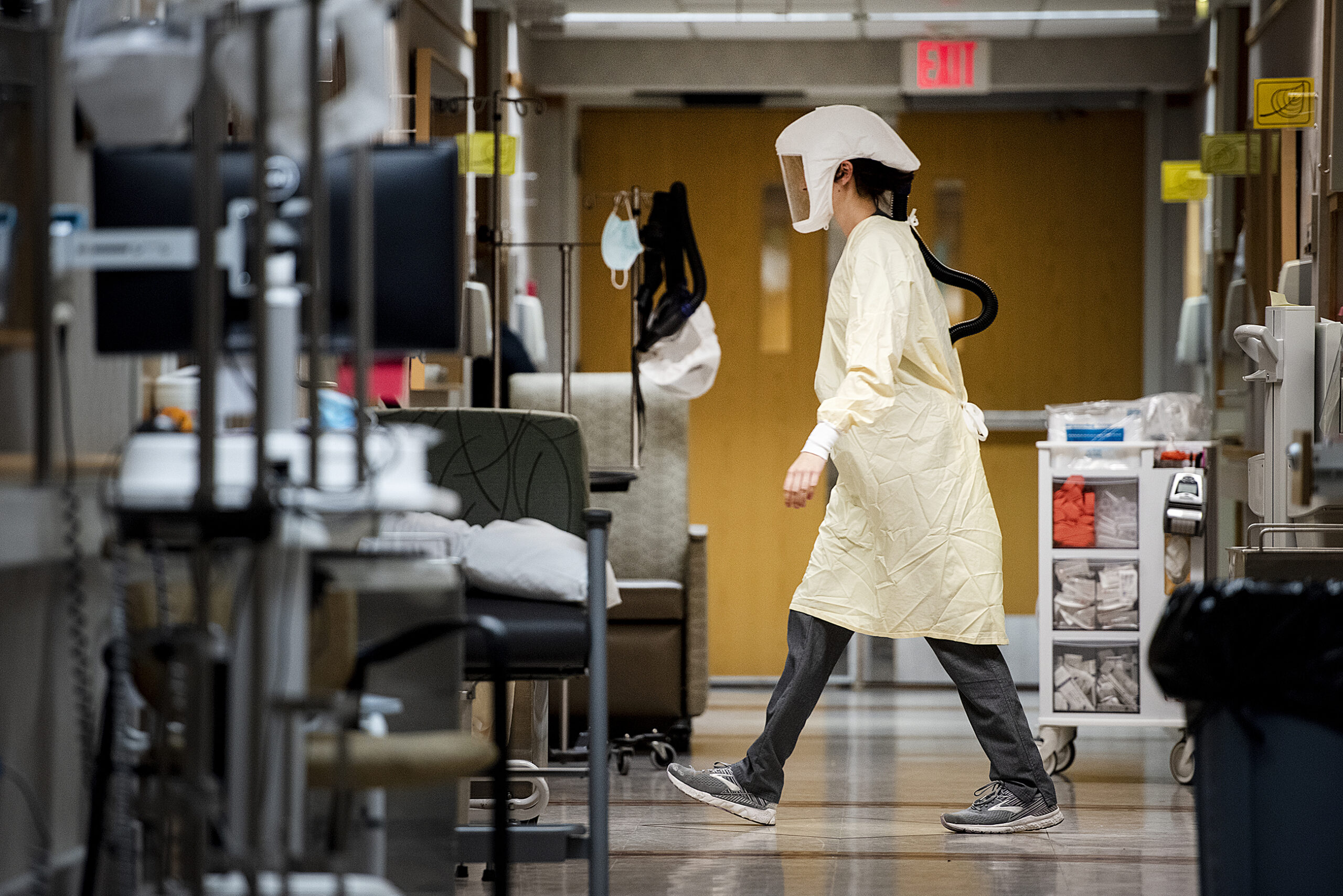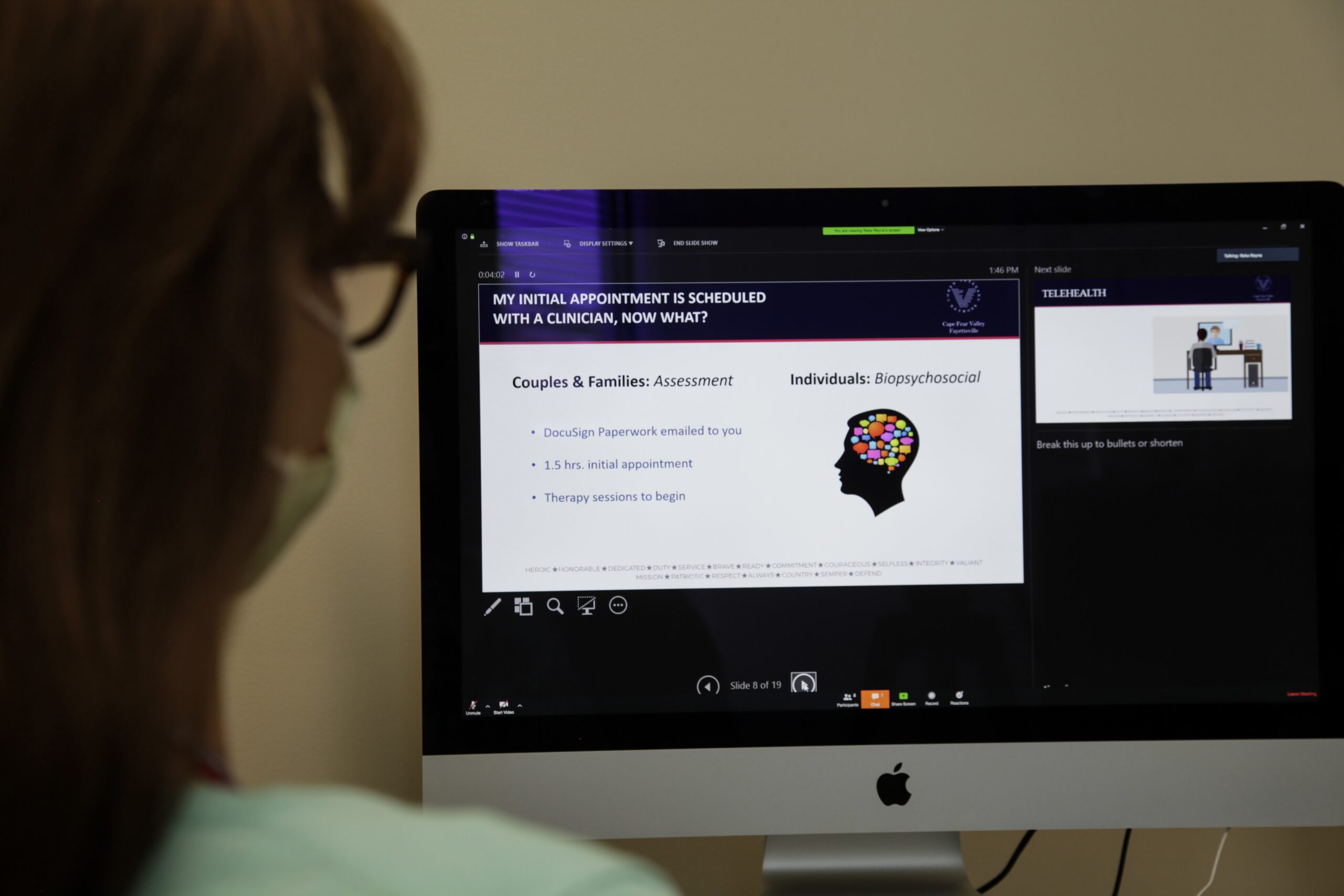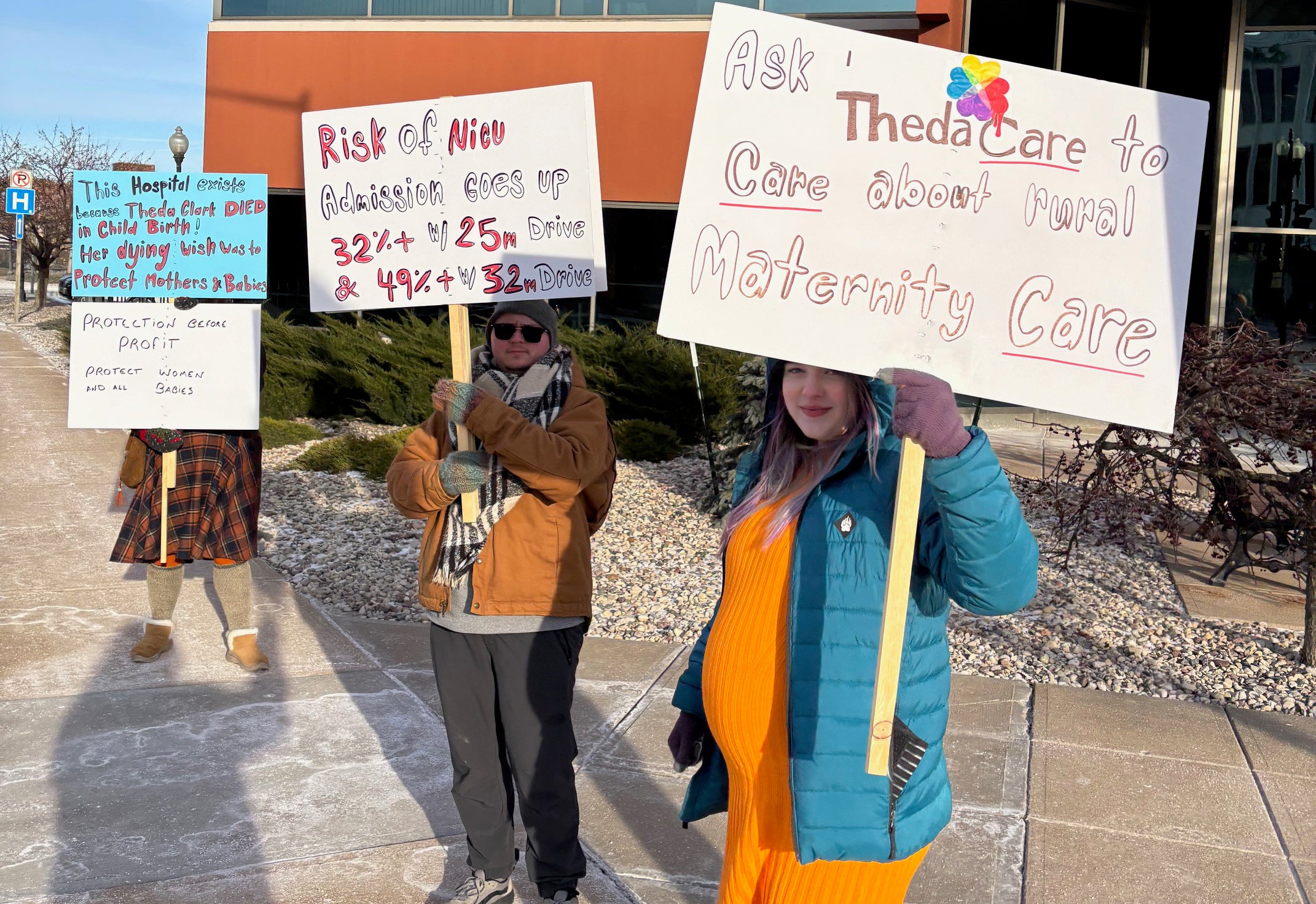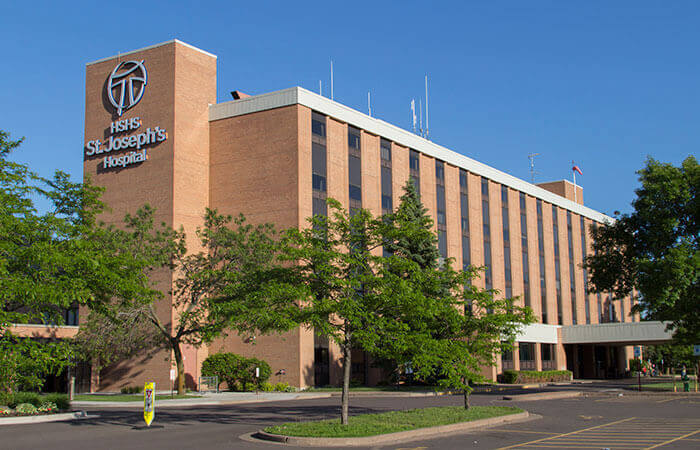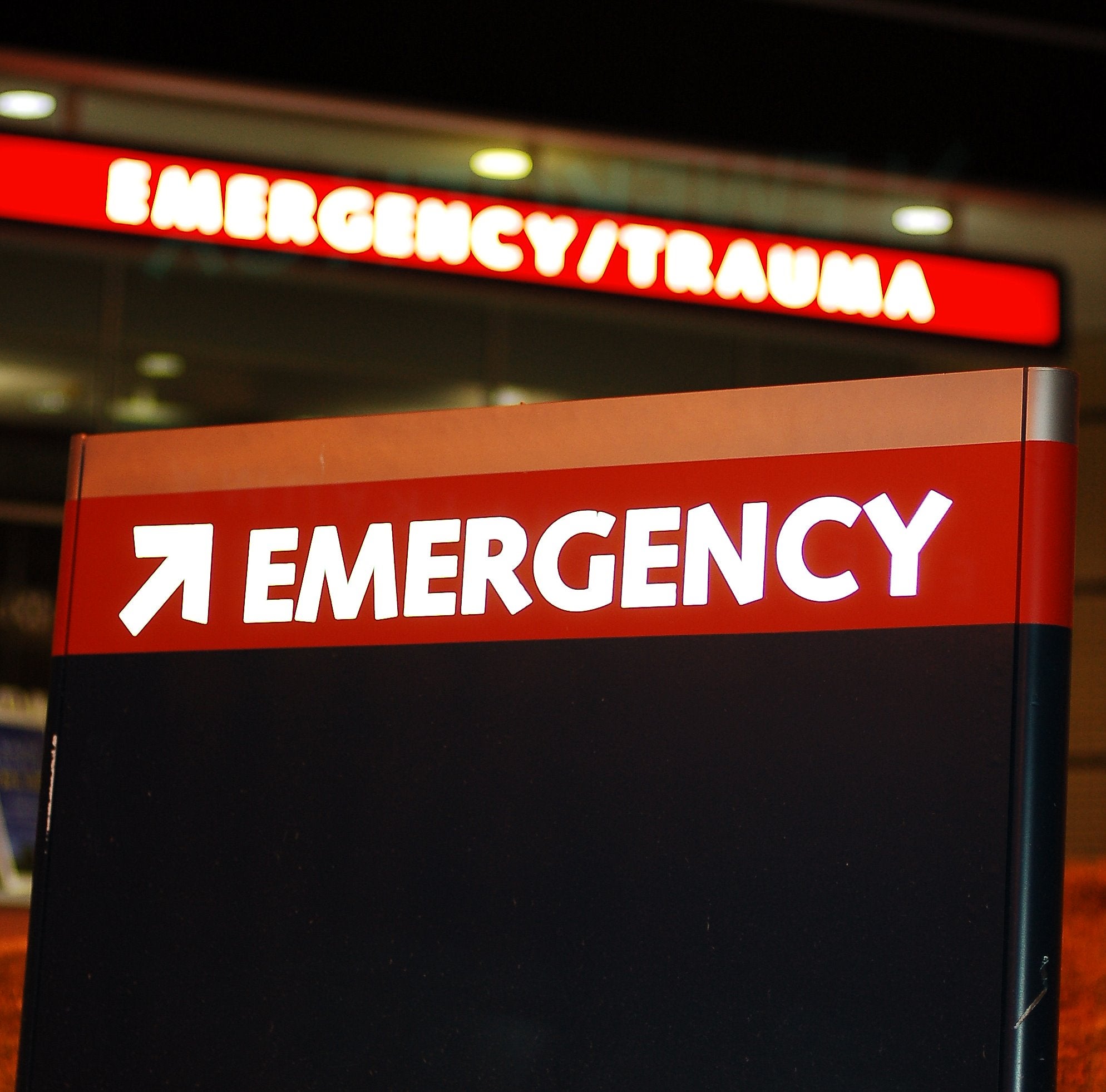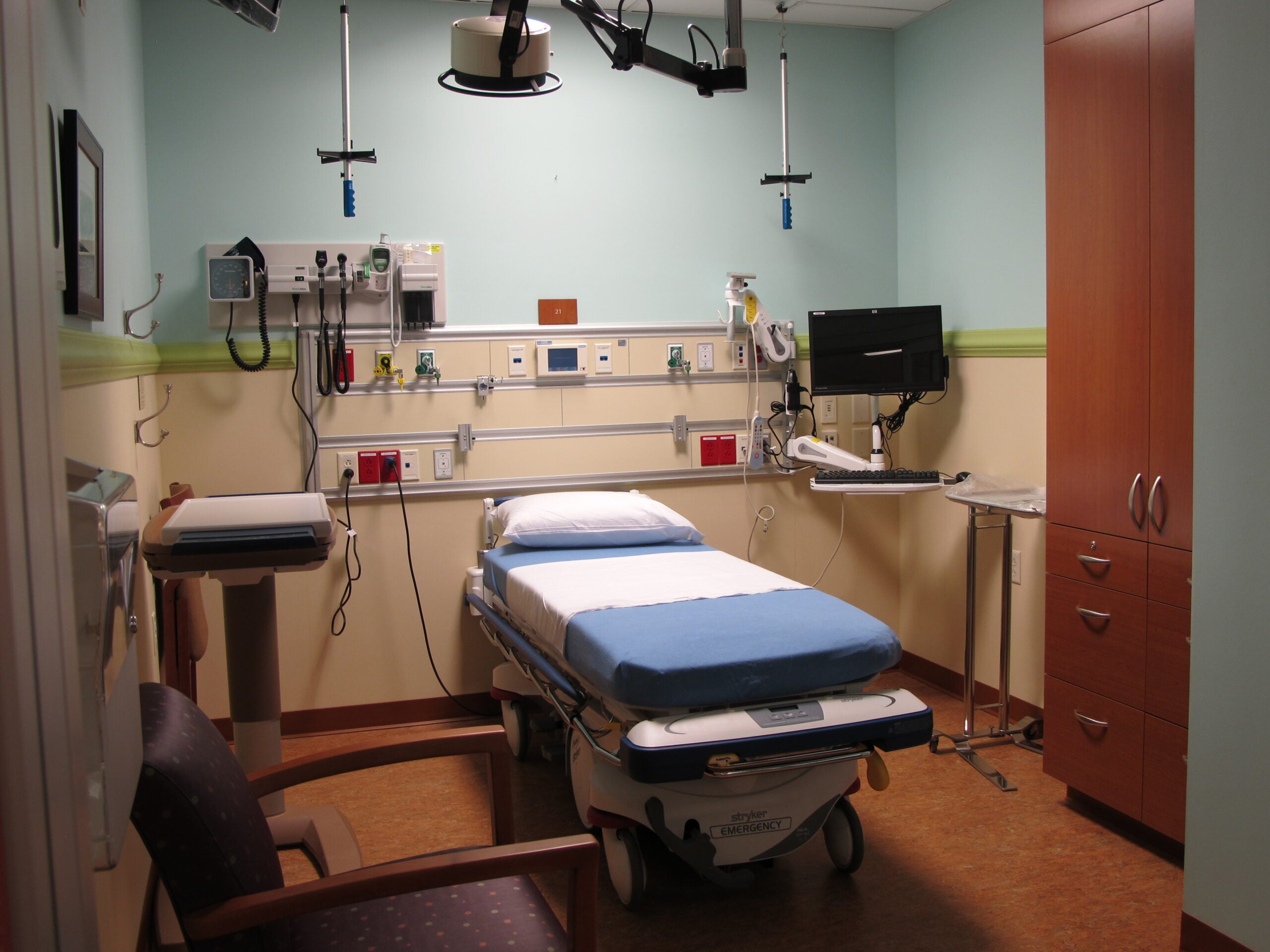On Monday night, there were no beds available in ThedaCare’s critical access hospitals, and the health care system had just two ICU beds available Tuesday morning.
Hospitals in northeast and central Wisconsin are nearing capacity as COVID-19 infections spike in the region. It’s heartbreaking whenever ThedaCare needs to transfer a patient, said Dr. Imran Andrabi, president and CEO.
And recently, transferring patients has required “begging and pleading” as other hospitals face similar challenges brought on by the current wave of COVID-19 infections, he said.
Stay informed on the latest news
Sign up for WPR’s email newsletter.
More than 1,000 Wisconsinites are hospitalized with COVID-19, and more than 90 percent of the state’s ICU beds are full, according to the Wisconsin Hospital Association.
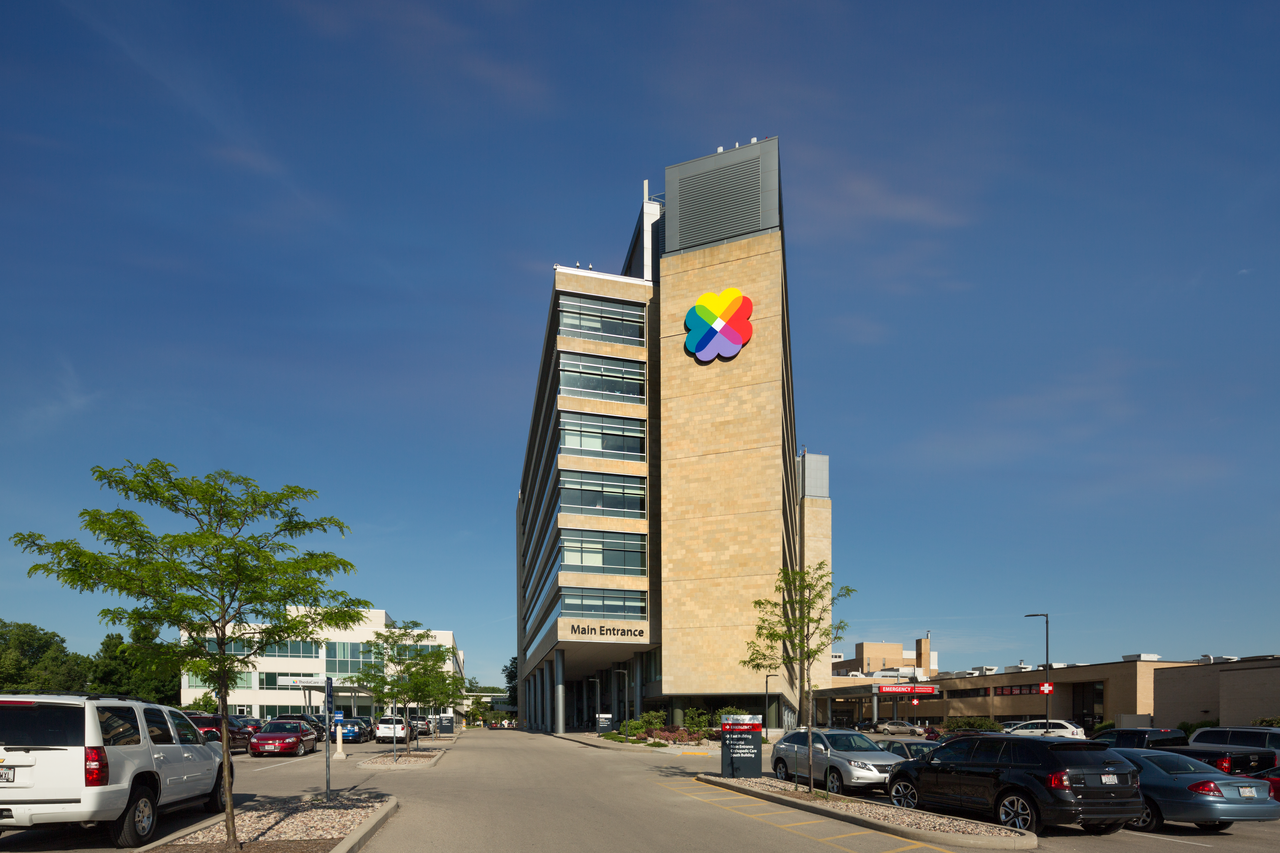
“We are here to take care of patients with COVID, but we’re also here to take care of patients with trauma and cardiac issues and strokes and heart attacks and pancreatitis and cancers and all the other things we have to be here to do for our communities,” Andrabi said.
Wisconsin is currently averaging more than 1,400 new COVID-19 infections per day, according to the Wisconsin Department of Health Services.
The state is seeing fewer daily infections than when COVID-19 began to spike a year ago — ultimately averaging nearly 8,000 cases per day in November 2020. But Andrabi said heath care providers are now seeing different groups getting sick.
Unlike earlier in the pandemic, most hospitalized patients are under age 50, he said. While younger patients are more likely to recover, they also spend longer in the hospital, which further strains the health care system.
Even though health care providers know more about COVID-19 and are better prepared in terms of testing and supplies, things are worse during this surge due to the highly contagious delta variant, Andrabi said.
“We are dealing with a completely different virus than we were dealing with in 2020. This is not the same virus,” he said.
‘We Can’t Hire People Fast Enough’
Along with the delta variant, another big challenge is facing hospitals across the country. As the pandemic drags on, it’s becoming more difficult to attract and retain health care workers. ThedaCare would need to hire about 200 people “to give some relief to people at the front lines,” Andrabi said.
When hospitals reference the number of beds remaining, they’re not always talking about the physical objects. Right now, there aren’t enough workers to care for the sick.
“It is not the ventilators, it is not PPE, it is not testing, it’s not the number of beds available. It’s people,” Andrabi said. “It’s a combination of people that are just tired, and some of them have just left health care totally. We can’t hire people fast enough to take care of all the needs, and there’s the issue of burnout.”
Recently, ThedaCare has postponed some elective surgeries on a case-by-case basis, Andrabi said.
Health Care Workers Are Asking For Help
ThedaCare, which operates seven hospitals in the area, is now asking for the community’s help. Residents can slow the spread of COVID-19 by wearing masks, avoiding gatherings and getting vaccinated, Andrabi said. More than 60 percent of Wisconsin adults are fully vaccinated against COVID-19, according to DHS.
Data from ThedaCare shows that it makes a difference. Since July 1, nearly 80 percent of ThedaCare’s hospitalized COVID-19 patients were unvaccinated, while 83 percent of COVID-19 patients in the ICU didn’t have their shots.
The community can help decide when this pandemic ends, Andrabi said.
“We all have to be part of the solution. The solution is not in a hospital bed in the ICU on a ventilator. That is not going to be the way we are going to save our communities,” he said.
Wisconsin Public Radio, © Copyright 2025, Board of Regents of the University of Wisconsin System and Wisconsin Educational Communications Board.
